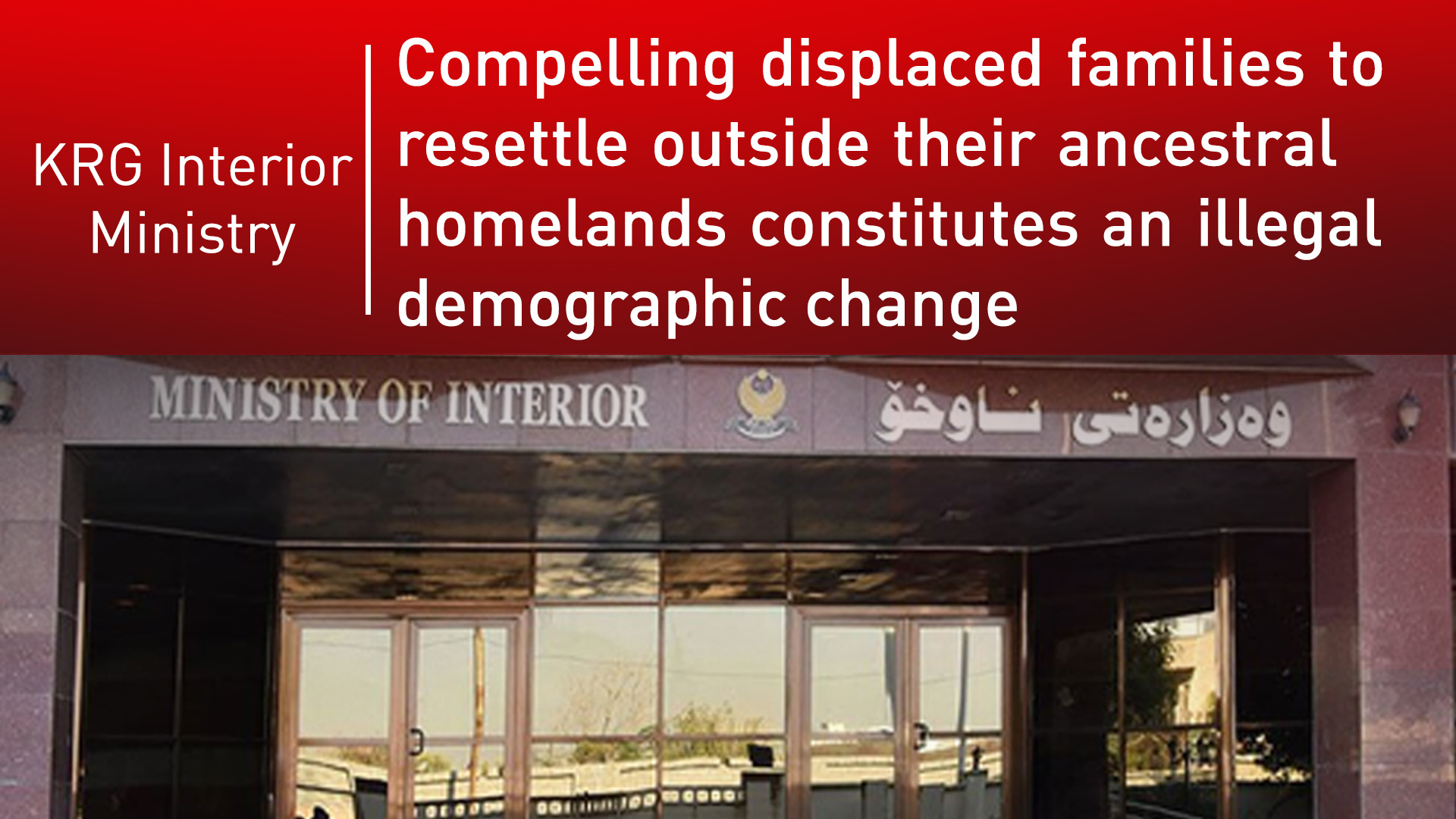KRG Interior Ministry Warns Against Forced Demographic Change of Christians and Yezidis
In a statement, the ministry said many displaced Christians and Yezidis have been living in camps across the Kurdistan Region with support from local communities, the KRG, and international organizations, awaiting the right conditions to return home safely.

ERBIL (Kurdistan24) – The Kurdistan Regional Government's (KRG) Interior Ministry on Thursday accused Iraq’s High Committee of Relief, led by Minister of Migration and Displacement Evan Faeq Gabro, of implementing measures that alter the demographics of Christian and Yezidi communities by forcing displaced residents to remain in camps.
In a statement, the ministry said many displaced Christians and Yezidis have been living in camps across the Kurdistan Region with support from local communities, the KRG, and international organizations, awaiting the right conditions to return home safely.
“Instead of facilitating voluntary returns and creating a stable environment, the Minister of Migration and Displacement and the High Committee of Relief are making decisions that deny refugees the chance to return, effectively prolonging their displacement,” the statement read.
The ministry warned that compelling displaced families to resettle outside their ancestral homelands constitutes an illegal demographic change that violates the Iraqi constitution, international humanitarian law, and the principles set out by the United Nations and the Geneva Conventions, which emphasize voluntary, safe, and dignified returns.
To address the issue, the KRG Interior Ministry called for urgent steps, including:
1- Suspension of federal decisions made by the Ministry of Migration and Displacement.
2- Involvement of the UN Special Representative in Iraq and international organizations in halting such measures.
3- Swift implementation of the Sinjar agreement, appointment of a new mayor, reconstruction, and restoration of basic services in damaged areas.
The statement reaffirmed the KRG’s commitment to finding a legal and lasting solution for displaced populations, stressing that sustainable peace can only be achieved through ensuring their security, restoring their properties, and guaranteeing access to essential services.
“The crisis cannot be solved by ignoring the root causes or issuing administrative decisions that evade reality,” the ministry concluded.
Iraq continues to face a protracted displacement crisis more than six years after the territorial defeat of ISIS. Over one million people remain internally displaced, with most living in private accommodation or informal settlements. However, approximately 100,000 IDPs still reside in 21 camps, primarily located in the Kurdistan Region.
According to UN figures, more than 511,000 IDPs and refugees currently live in Erbil and Duhok provinces, with the majority residing outside formal camps. As of December 2024, the UNHCR reported that over 36,000 displaced individuals—mostly from the Yezidi community—had left camps in the Kurdistan Region.
